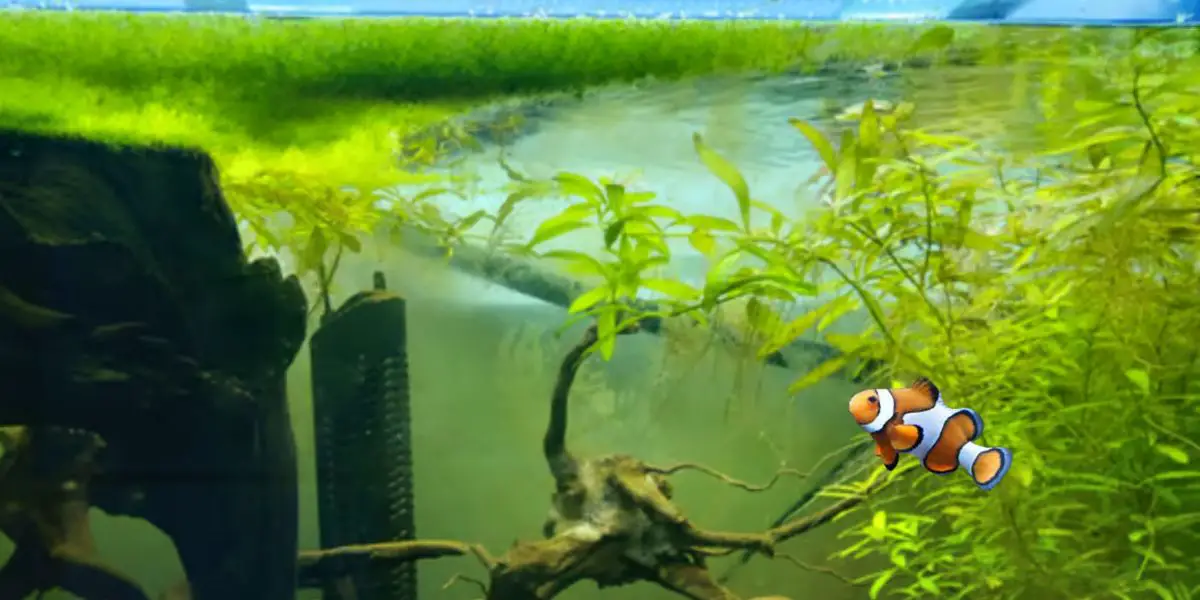Duckweed is a common nuisance for aquarium enthusiasts. Its rapid growth can quickly invade your tank, blocking light and depriving other aquatic plants of nutrients. Fortunately, getting rid of duckweed in your aquarium is not an insurmountable task. In this guide, we’ll walk you through the steps to effectively eliminate duckweed from your aquatic ecosystem.
Understanding Duckweed
Before we dive into the removal methods, let’s look at what duckweed is and why it can be problematic for your aquarium.
What is Duckweed?
Duckweed, scientifically known as Lemnoideae, is a small floating aquatic plant characterized by its tiny, round leaves. It reproduces rapidly through budding, making it challenging to control once it takes hold in your aquarium.
The Problems with Duckweed
Duckweed may seem harmless, but its presence can lead to several issues in your aquarium:
- Light Blockage: Duckweed forms dense mats on the water’s surface, blocking light from reaching the lower levels of your tank, which can harm other plants.
- Nutrient Competition: Duckweed absorbs nutrients from the water, which can deprive other aquatic plants of essential elements.
- Oxygen Depletion: Dense duckweed coverage can lead to reduced oxygen exchange, endangering your fish.
Identifying the Source of Duckweed
To effectively remove duckweed, you need to identify how it entered your aquarium in the first place. Here are some common sources:
Contaminated Plants or Fish
Duckweed can hitch a ride on new plants or fish you introduce to your tank. Always inspect and quarantine new additions before introducing them to your main aquarium.
Outdoor Contamination
If you use outdoor water sources for your tank, duckweed may have been introduced through this water. Use a fine mesh net to filter out any potential contaminants before adding water to your aquarium.
Getting Rid of Duckweed In the Aquarium Manually
Manual removal is often the first step in getting rid of duckweed. Here’s how to do it:
1. Use a Fine Mesh Net
Gently skim the surface of your aquarium water with a fine mesh net to scoop up duckweed. Repeat this process daily to prevent its rapid return.
2. Create a Duckweed-Free Zone
Use a plastic barrier or a surface skimmer to section off an area of your aquarium where duckweed is not allowed to grow. This can help you control its spread.
Biological Control
Introducing natural predators or competitors can also help control duckweed growth.
1. Goldfish
Goldfish are known to eat duckweed. Adding a few goldfish to your aquarium can help keep the duckweed population in check.
2. Floating Plants
Duckweed thrives in still water. Adding fast-growing floating plants like Water Lettuce or Water Hyacinth can outcompete duckweed for nutrients and light.
Chemical Control
While manual and biological methods are effective, sometimes you may need to resort to chemical treatments.
1. Duckweed Herbicides
There are aquatic herbicides specifically designed to target duckweed. Follow the instructions carefully, as these chemicals can affect other plants and fish if not used properly.
2. Algaecides
Certain algaecides can also help control duckweed. However, be cautious when using them, as they may harm other aquatic life in your tank.
Preventing Duckweed Re-infestation
Once you’ve successfully removed duckweed from your aquarium, take steps to prevent its return.
1. Quarantine New Additions
Always quarantine new plants and fish to ensure they are free from duckweed or other contaminants.
2. Maintain Proper Water Conditions
Regular water changes, adequate filtration, and maintaining proper nutrient levels will discourage duckweed growth.
3. Monitor Your Aquarium
Regularly inspect your aquarium’s surface for any signs of duckweed resurgence and take action promptly.
Conclusion
How to get rid of duckweed in your aquarium? It may require some effort, but with the right methods and persistence, you can maintain a healthy aquatic environment for your plants and fish. Remember to stay vigilant and take preventive measures to keep your aquarium duckweed-free.
FAQs
1. Is duckweed harmful to fish?
Duckweed itself is not harmful to fish. However, it can deplete oxygen levels if it covers the entire surface of the water, which can be dangerous for fish.
2. Can I use bleach to remove duckweed from my aquarium?
No, using bleach is not recommended, as it can harm your aquarium’s ecosystem and fish. Stick to the methods mentioned in this guide for safe removal.
3. How long does it take to completely get rid of duckweed?
The time it takes to eliminate duckweed depends on the size of your aquarium, the severity of the infestation, and the methods you use. It may take a few weeks to several months.
4. Can I compost removed duckweed?
Yes, you can compost duckweed. It makes an excellent addition to compost piles as a source of nitrogen.
5. Will duckweed grow back after I remove it?
There is a possibility of duckweed returning, especially if you don’t take preventive measures. Regular monitoring and maintenance are essential to prevent its re-infestation.

